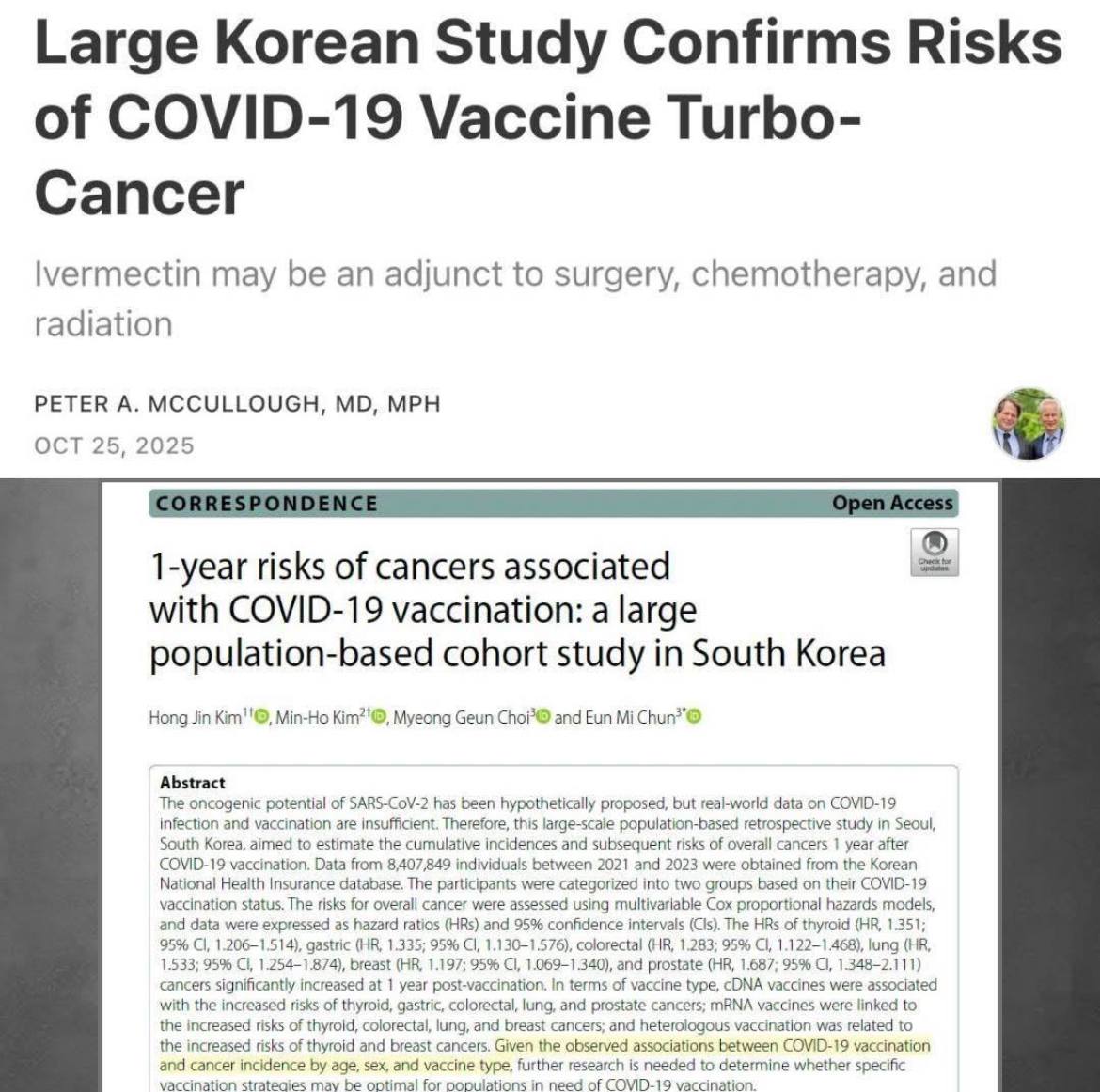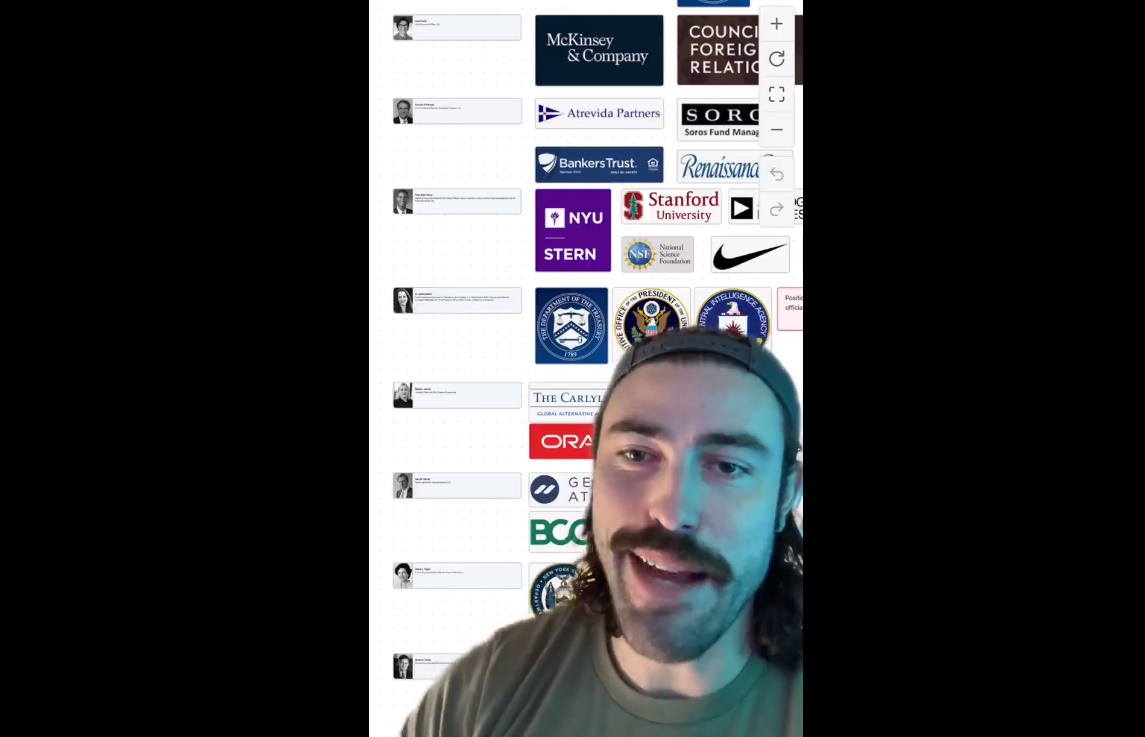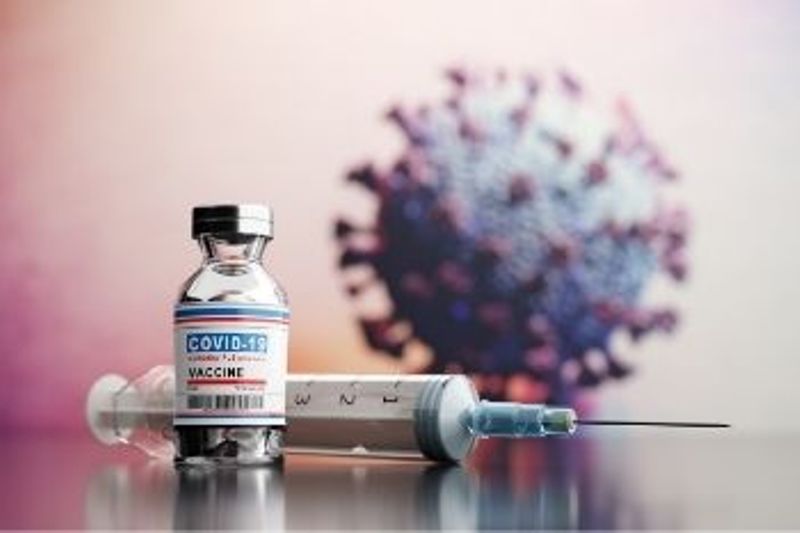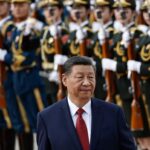A Landmark South Korean Population-based Cohort Study, published in Biomarkers Research, has Revealed Compelling Evidence linking all COVID-19 Vaccines to Significantly Increased Cancer Risks
By LauraAboli

A landmark South Korean population-based cohort study, published in Biomarkers Research has revealed compelling evidence linking all COVID-19 vaccines to significantly increased cancer risks.
Conducted within South Korea’s robust healthcare system, this peer-reviewed research analyzed health outcomes across a massive cohort of vaccinated individuals—millions in scope, though exact figures remain undisclosed—over a 12-month period.
The study included recipients of all major COVID-19 vaccine types: mRNA-based (e.g., Pfizer-BioNTech, Moderna) and viral vector-based (e.g., Johnson & Johnson, AstraZeneca).
Below are the key effects identified:
• Increased cancer incidence across all vaccine types, with a statistically significant rise in new diagnoses within one year post-vaccination.
• Broad spectrum of malignancies affected, showing accelerated onset, though specific cancer types were not detailed in the summary.
• Potential oncogenic role of the SARS-CoV-2 Spike protein, a universal vaccine component, which may disrupt cellular pathways and promote rapid tumor growth, termed “turbo-cancer” for its aggressive progression.
• Consistent risk elevation across mRNA and viral vector vaccine platforms, confirmed by adjusted hazard ratios indicating a strong association.
Dr. Peter A. McCullough, MD, MPH, Chief Scientific Officer at The Wellness Company, stated: “This study confirms that all forms of COVID-19 vaccination are associated with increased cancer risks, corroborating earlier global surveillance signals.”
Leveraging South Korea’s comprehensive health data, the study’s large-scale design ensures high statistical power, amplifying prior concerns from adverse event monitoring systems.
As vaccination campaigns continue, this evidence again challenges the “safe and effective” narrative, necessitating urgent follow-up studies, enhanced monitoring, and reevaluation of informed consent.
For those questioning vaccine safety, this is another critical moment to demand accountability.



















